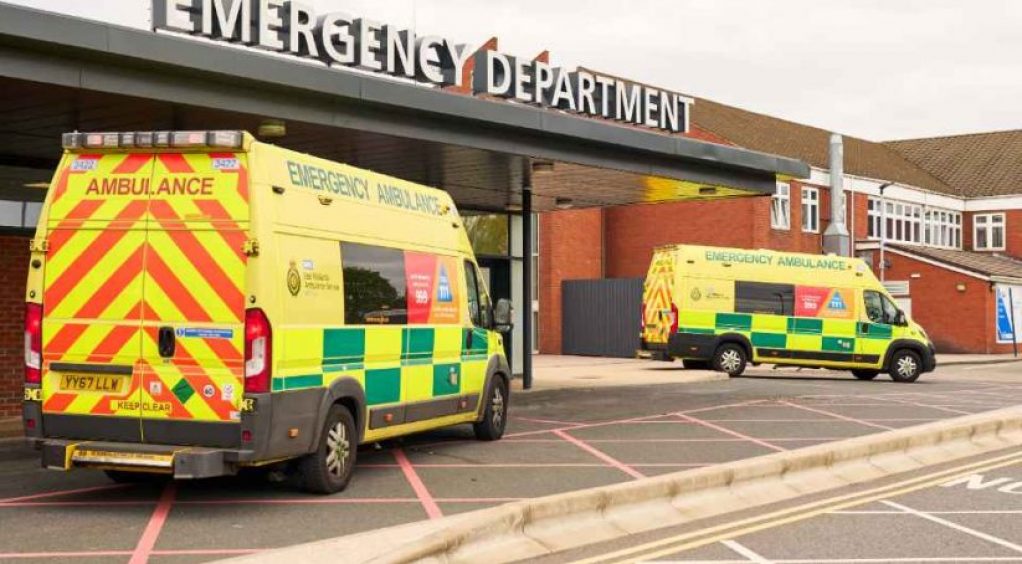Derbyshire health and care system continues Critical Incident
Updated 11:00am
Due to the significant and sustained demand for urgent and emergency care services, the Derbyshire health and care system continues to declare a critical incident and take additional steps to prioritise and maintain safe services for patients.
The decision to extend the critical incident was taken at during the system’s Strategic Command meeting at 3:45pm on Thursday, 21 July, following the initial calling of the incident on Wednesday afternoon.
After additional steps were taken across the system, key measures of pressure were seeing improvement on Thursday afternoon and into Friday. Compared to the same time on Wednesday, fewer patients were waiting for the arrival of an ambulance, fewer ambulances were waiting outside emergency departments, fewer patients were waiting for admission to a hospital bed and fewer patients were waiting for discharge from hospital to the next place of care. However pressure remained at such a level that the incident response was maintained.
Services continue to prioritise patients with the highest level of need and to continue to be able to manage emergency care. To support the response to the critical incident, further non-urgent operations where patients require a stay in hospital will need to be postponed accommodating those patients with the most urgent clinical need. We are very sorry we have had to take this step, but it is important that we focus on patients needing urgent and emergency care. If you have an appointment and are not contacted directly, you should continue to attend for your appointment.
Health and care services continue to work together to resolve the situation, and there are steps everyone can take to help.
Critical incident: how the public can do to help
Our teams continue to work exceptionally hard and we would like to reassure our patients and the public that despite the challenges faced and the changes highlighted, essential services remain fully open for anyone who needs them so if you require urgent medical help, you should continue to come forward.
Other things which everyone can do to help the NHS right now, include:
- Only call 999 or attend accident and emergency departments for serious accidents and for genuine emergencies.
- When needing urgent medical care but it’s not an emergency, visit NHS 111 online or call NHS111 for advice on how to get care at any time of day or night.
- Urgent treatment centres – like the ones at Osmaston Road in Derby, Ilkeston, Ripley, Darley Dale, Buxton, Samuel Johnson and Robert Peel Community Hospitals – can help get the care needed for dealing with the most common issues that people attend emergency departments for. They will often be able to help get the care needed more quickly than accident and emergency departments if suffering from things like a burn or a sprain.
- For other non-urgent cases when needing medical advice and it’s not an emergency, speak to your GP practice or a pharmacist.
- Please continue to treat all NHS and care staff with the respect they deserve. Our hard-working staff and volunteers are doing all they can to keep patients safe and supported.
- If unable to make any NHS appointment, please contact the number on appointment letters so that it can be reallocated to another patient.
Despite local media reports, the current pressure is not being caused by the recent high temperatures. The impact and after-effects of the heatwave may yet to be seen, with predicted exacerbations of respiratory illnesses, so there may be further pressure and measures introduced in the coming days to ensure we can maintain urgent care for the most acutely ill patients. We are encouraging neighbours and friends and family to check on anyone who has an existing respiratory condition, to ensure they are okay and not suffering from additional wheeziness or shortness of breath. If anyone has these symptoms, please ensure they are following their care plan with medication, inhalers and oxygen support, and contact NHS 111 to seek clinical advice. It is essential that they receive treatment early and seek to prevent an admission to hospital.
- Anyone who is in mental health distress should call the Derbyshire Mental Health Helpline and Support Service: 0800 028 0077 – the helpline is open 24 hours a day.

